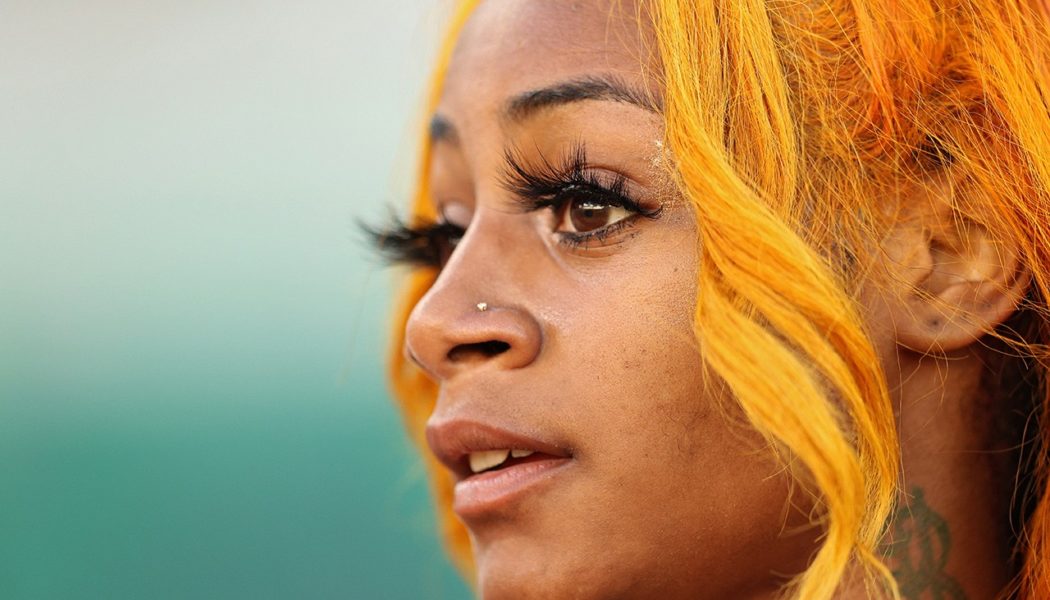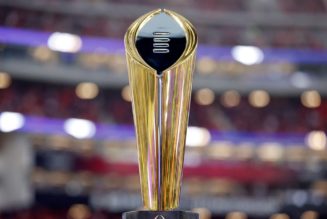Things in Japan aren’t looking great. With the Tokyo Olympics set to start in just over two weeks, the country’s exponential rise in COVID-19 cases has led to an extended state of emergency across the capital and three other major districts. Earlier this year foreign spectators were ruled out from attending the games as a result of the ongoing pandemic, but now reports suggest the Japanese government has banned spectators completely.
While the issues caused by COVID-19 continue to be a major cause for concern, a flurry of recent events have raised further concerns around the games and those who run it — leading some to ask: even if they go ahead, is it time we “cancel” the Olympic Games?
Last week, American sprinter Sha’Carri Richardson was controversially handed a one-month ban after testing positive for marijuana. The 21-year-old — who won the 100m at the U.S. Olympic trials in Oregon in June — set the sixth-fastest time ever earlier in the year and was slated for Olympic success. However, following the ruling, her dreams were dashed.
After news surfaced of Richardson’s suspension, an array of names from across the world of sport and media came to the sprinter’s defence, many of whom calling for the ban to be reconsidered.
“It’s legal to recreationally smoke weed in 19+ states, including the one where Richardson tested positive, while the NFL, NBA, and MLB have softened their stance,” tweeted journalist Joe Pompliano. “But we’re still going to stop an Olympian from competing due to a non-performance-enhancing drug? Makes no sense”.
The U.S. Anti-Doping Agency said in a statement last week that Richardson had accepted her suspension, with her results obtained on June 19 — including her Olympic qualifying results at the Team Trials — disqualified too.

Sha’Carri Richardson is the fourth fastest American woman in history.Patrick Smith/Getty Images
Alongside the news of Richardson, the international governing body for swimming raised eyebrows after it announced the banning of ‘soul caps’ at the Olympic Games. Designed to fit over and protect dreadlocks, afros, weaves, hair extensions, braids, and thick and curly hair, the soul cap is designed to accommodate Black swimmers and is seen as reducing barriers for under-represented groups to get involved with the sport. However, after being told they don’t follow “the natural form of the head”, they won’t be seen at this summer’s games.
While on an international level soul caps are prohibited, Swim England are of a different view. “We fully understand how swimming hats designed for Afro hair can reduce barriers to the sport for under-represented groups, including Black people,” it said in a recent statement. “We would therefore like to reassure all our members and the wider swimming community that we embrace their use for participation, training and racing”.
As if that wasn’t enough, earlier this week the International Olympic Committee (IOC) officially announced that it had upheld the banning of protesting during events and medal ceremonies, instead urging athletes who wish to “express their views” to do so before or after their respective events.
This announcement — which the IOC confirmed took 10 months of consulting with over 3,500 athletes — comes soon after track and field star Gwen Berry turned her back on the U.S. flag and “The Star-Spangled Banner” during the Olympic trials last month.

Gwen Berry turns away from U.S. flag during the National Anthem on the podium after the Women’s Hammer Throw final.Patrick Smith/Getty Images
Berry, who is renowned for using her success to call for justice and equality, said in a recent interview with CNN when asked if she’d comply at the Tokyo games: “It depends on how I’m feeling. It depends on what I want to do in that moment, and what I want to do for my people in that moment.”
While protesting of this kind is nothing new — think back to 1968 when African-American athletes Tommie Smith and John Carlos raised a black-gloved fist during the playing of the U.S. national anthem — these overtly political statements are now something the IOC is keen to remove from sport.
Berry lost a handful of sponsors in 2019 after raising her fist in protest on the podium at the Pan American Games and subsequently received a 12-month ban for the act she described as “to highlight social injustice in America”.
Controversy around testosterone bans are becoming increasingly common too. Famously female sprinter Caster Semenya has been at the centre of an ongoing battle with various governing bodies for some time now. After winning Olympic gold in the 800m in both 2012 and 2016, the South African was ordered to take testosterone-reducing drugs in order to continue competing, following a rule change in 2019 by governing body World Athletics.
Despite several appeals — the most recent at Switzerland’s Federal Supreme Court in a bid to compete at Tokyo 2020 — Semenya remains ineligible to race without medication, with World Athletics believing those with higher levels of natural testosterone have an unfair competitive advantage. In a bid to compete at Tokyo, Semenya opted to race in the 5,000 metres (a distance World Athletics doesn’t enforce the testosterone rules) however she came some 20 seconds short of the qualifying time.
More recently too, Namibian track and field athletes Christine Mboma and Beatrice Masilingi have been suspended from this year’s event following their natural testosterone levels being too high, despite the pair running four of the top five women’s 400m times in the world in 2021.

Caster Semenya.Cameron Spencer / Staff
All of the above — combined with a growing discussion around safeguarding the mental wellbeing of athletes — paints a picture of the Olympics and those behind it as an event that has failed to move in step with the times.
The IOC’s stagnation is made worse too by the forward-thinking approach of other sports organisations. Following the death of George Floyd and the subsequent protests across the globe, football associations, organisations and players globally have made continuous efforts to support the #BlackLivesMatter movement, and have shown their support in the fight against racial injustice, with many players still now in Euro 2020 choosing to take the knee prior to kick-off. Beyond that, this year’s tournament has been marked by players using their platform to promote issues of social justice and equality, from Jordan Henderson’s LGBT+ rainbow laces to German keeper Manuel Neuer’s rainbow armband.
In the U.K. too, England and Manchester United striker Marcus Rashford has used his profile to raise awareness of poverty in the United Kingdom over the last year, in particular helping underprivileged kids by successfully campaigning for free school meals, amongst other things. The increasing social awareness of footballers — and the freedom given to them to express their views — has been widely considered as a welcome development for the sport, and a sharp contrast to the environment surrounding the Olympic Games.
In a world where free-speech is welcomed and often encouraged, social media and other platforms, particular in the sports industry, can be invaluable. And as many companies and organisations continue to move and utilise this current climate, the International Olympic Committee must be feeling the pressure to do the same, and finally begin to align itself with the social landscape we’re currently in.









